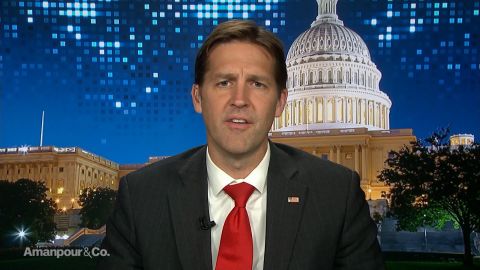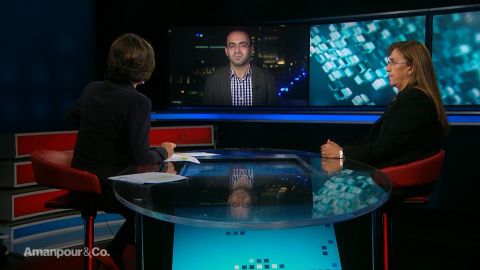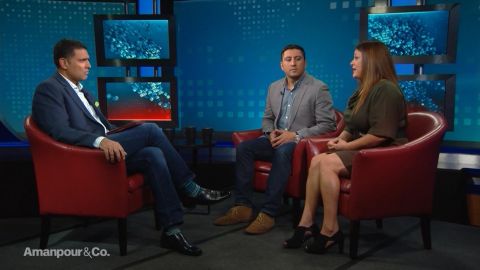Read Transcript EXPAND
BEN SASSE: Policy has to flow from principle and the U.S. government is now going to need to evaluate what policy implications this has but it flows from an upstream thing, which is we need to have agreement about how we believe — what we believe human dignity, what we believe about freedom of speech, religion, press, assembly, protest, the way we think about it in the U.S. And the Saudis need to be able to articulate some long-term north star about they believe about human rights. And right now, they’re a number of things that are being called into question with Saudi leadership in general and with MBS in particular.
CHRISTIANE AMANPOUR: Senator, you colleague across the aisle, Chris Murphy of Connecticut, seems to think that actually the United States needs to declare what it believes as its moral leadership and what you’re saying Saudis need to. He says, the White House seems to be saying that the Trump doctrine is that the U.S. will ignore your human rights abuses, assassinations or war crimes as long as you buy things from us. He’s got it totally and complete backwards. Would you agree with that?
SASSE: Yes. I didn’t hear the larger context of Senator Murphy’s comments. He and wrestle and differ on a lot of domestic policy issues. But the broad shape of what I hear on that quote, I do agree with. I think there’s sometimes about 2 million of the 320 million Americans are Nebraskans. And so, in our rural ag state, they’re sort of a commonsense way to speak about things. And I think a lot of Nebraskans believe that the alleged tension between realism and idealism in foreign policy is usually overstated. Because in the long-term, the best thing for the U.S. is to be a nation that leads an alliance and global alliances of peoples that believe in similar things about human dignity. And we need to articulate those values and countries need to know that those are not changeable principles for us based on short-term issues about one economic transaction. The U.S. is not a transactional nation, we’re a values-based nation that believes in big and long-term things and we want the Saudis to align with us about those things overtime. And right now, we need to declare that clearly and they need to do some serious soul searching.
AMANPOUR: So, Senator, maybe members of your own state, the 3 million you say are in Nebraska and 300 million or so around the United States who the president seems to think benefit directly from his economic relationship with Saudi Arabia. My question to you is, you must know the facts and the figures, you must know about the arms sales and the real money and American leverage and power. Do you think that America has greater leverage over Saudi Arabia or is the president seems to indicate that Saudi Arabia has greater leverage over America in this case?
SASSE: Yes. I think it’s always important to see arms sales as means to a larger end, not as the end of themselves.
About This Episode EXPAND
Christiane Amanpour speaks with U.S. Sen. Ben Sasse about his new book; and former adviser to Turkish Prime Minister Taha Ozhan & scholar Madawi al-Rasheed about current events in Turkey. Hari Sreenivasan speaks with Cindy Shank and Rudy Valdez, the subject and director of “The Sentence.”
LEARN MORE


